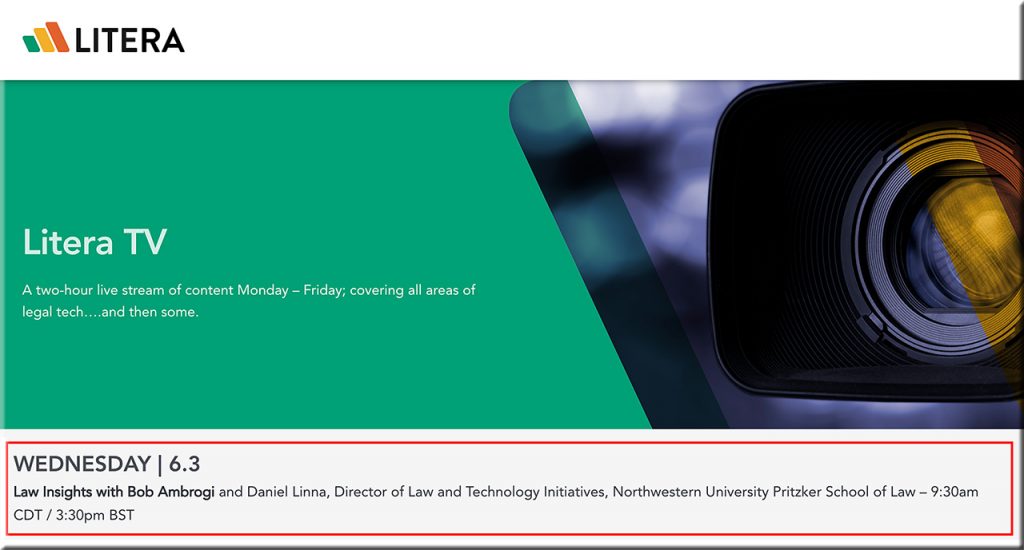WEDNESDAY | 6.3 | Law Insights with Bob Ambrogi and Daniel Linna, Director of Law and Technology Initiatives, Northwestern University Pritzker School of Law
Notes (emphasis DSC):
- Trying to build community, collaborate, work together
- How do you manage a team remotely? How build community online?
- Spontaneous interactions still needed
- In what ways does the online ecosystem ADD to what we are doing?
- Jury trial – online; equalizer for those involved in trial; “all in same space on the screen”
- Start with some basic/smaller things – landlord/tenant
- Racism going on heavily this week – a second pandemic
- Developing a quality movement in law (Linna)
- We need quality metrics and we need to measure the value being provided. What makes something effective, high-quality, and valuable? Now apply that thinking to the delivery of legal services.
- Project mgmt / quality movement – less defects, etc. in 1980’s / lean thinking / 6 sigma in GE / but haven’t seen this in the area of law
- Empiricism in law – 100 years ago medicine and law were in the same spot; since then medicine started more testing, empirical work, data-driven practices; but law didn’t
- Daniel Linna’s blog – https://www.legaltechlever.com/
- Can we come up with metrics?
- Dan worked with a lawyer-assisted program in Lansing, MI – what happened? What was duration of cases? Data-driven thinking; measure; make it more of a science
- Bob asked isn’t law less scientific and perhaps more art than a science?
- What kinds of metrics are we talking about in litigation?
- Contracts – can we figure out what adds value and what makes a contract “better?” (Insert from DSC: Better for whom though?)
- What actually matters to the client? Clauses that lawyers think that are important, businesspeople don’t think are important. Risk mitigation is not all the client thinks about.
- Incomprehensible contracts – too hard to understand
- Natural language generation – what inputs do we need? We don’t want many contracts to be the dataset that an algorithm gets trained on.
- (Insert from DSC: Daniel relayed some information that reminded me of Clayton Christensen’s disruptive thinking: 80% of impoverished folks get NOTHING. Totally disconnected. Perhaps we don’t need perfection, but even something is much better than nothing. For example, provide an online legal aid booklet to those who are trying to represent themselves.)
- Go for low-hanging fruit for more empirical
- Ambrogi: How does the work you are doing impact access to justice (#A2J)? How could quality movement impact police procedures? Is there applicability in terms of what you are writing about?
- Human-Centered Design – uncovering biases. Why would people TRUST the criminal system if they can’t trust the CIVIL system? Perhaps if landlords thought differently. Disconnected.
- Innovate, improve, project management;
- Way decisions are made vary greatly; need more open data from our courts; lack of transparency from courts.
- Leadership – commitment to resolve issues. Lacking vision. What do we want our legal systems to look like/act like?
Call to action:
- Have or develop a quality mindset
- Leadership needs to paint a vision for what the future looks like
- Training around legal operations
- How to measure quality and value – be more data-driven
We need disruption AND continuous improvement – not one or the other.
–Daniel Linna









